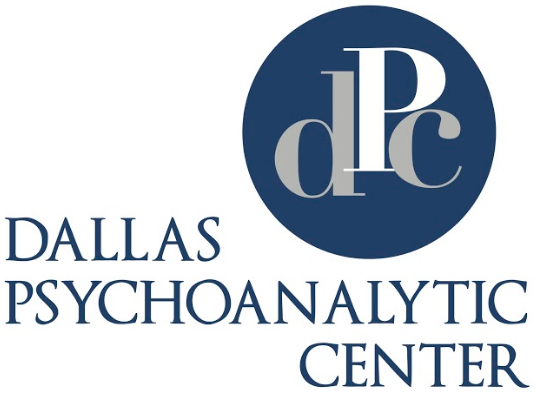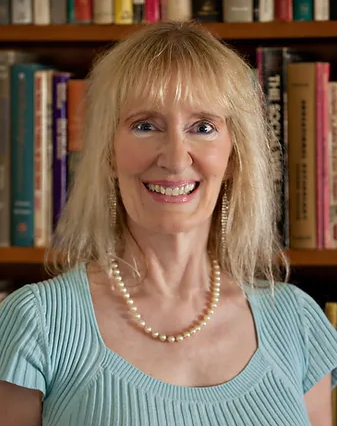
Title: The Integration of Psychodynamic Theory into Clinical Practice
Presenter: Martha Stark, MD
Date/Time: Saturday, January 11, 2025 from 9:00 am - Noon CENTRAL TIME
Location: Live Stream via Zoom from Dallas, TX
Credit Hours: 3 credit hours
REGISTER HERE
(DPC Members: remember to login first to begin the registration process)
Description:
From moment to moment, we are continuously deciding how best to position ourselves in relation to our patients and the maladaptive defenses to which they cling – once necessary for them to survive but now interfering with their ability to thrive.
On the one hand, we have respect for our patients and for the choices, no matter how unhealthy, that they find themselves continuously making; on the other hand, we have a vision of who we think they could be were they but able/willing to make healthier choices for themselves. Indeed, we are always struggling to find an optimal balance within ourselves between accepting the reality of who our patients are and wanting them to change.
Whether we are working within the interpretive framework of classical psychoanalytic theory (a 1-person psychology with its emphasis on “interpreting resistance,” “developing insight,” and “resolving internal conflict”), the corrective-provision framework of self psychology (a 1½-person psychology with its emphasis on “absence of good,” “grieving heartbreak,” and “filling in deficit”), or the intersubjective framework of contemporary relational theory (a 2-person psychology with its focus on “presence of bad,” “negotiating the in-between,” and “resolving relational conflict”), we are ever busy deciding whether we should “be with our patients where they are” (Herzog’s homeostatic attunement) or “direct their attention to elsewhere” (Herzog’s disruptive attunement) – a critically important balance that is necessary if the analytic endeavor is to be advanced.
Ever appreciating the importance of translating theory into practice, Martha will highlight the ways in which the therapist's ongoing attunement to the level of the patient's anxiety can be used to construct “optimally stressful” interventions that offer just the right balance between anxiety-provoking challenge of the patient's defensive structures (in order to provide impetus for their destabilization) and anxiety-assuaging support of them (in order to provide opportunity for their restabilization at a more robust level of resilience and adaptive capacity).
Snippets of clinical material will be offered that demonstrate how judicious, strategic, and ongoing use of these growth-incentivizing “mismatch experiences” will generate iterative healing cycles of disruption and repair and, ultimately, evolving of the patient from “resistance" to "awareness" (Model 1), "relentless hope" to "acceptance" (Model 2), and "re-enactment" to "accountability" (Model 3).
The material presented will be based upon Martha's award-winning Modes of Therapeutic Action book (which is “required reading” – both in the US and around the world – for candidates in psychoanalytic training institutes and students in psychodynamic psychotherapy programs).
Learning Objectives:
1. highlight the distinction between defensive, mindless reactions and adaptive, mindful responses
2. explain the importance of cultivating dual awareness
3. clarify the importance of generating, and working through, optimally stressful but growth-incentivizing “mismatch experiences”
4. elaborate upon the reason that “optimally stressful” interventions provide both impetus and opportunity for transformation and growth
5. design an optimally stressful conflict statement that both challenges and supports the patient’s defense
6. construct an optimally stressful disillusionment statement that facilitates the patient’s grieving and coming to terms with a painful reality
7. formulate an optimally stressful accountability statement that spotlights one of the patient’s dysfunctional relational patterns
8. speak to the distinction between “being with patients where they are” and “directing their attention to elsewhere”
9. demonstrate the therapeutic impact of “no pain / no gain”
Biographical Information:

Martha Stark, MD, a graduate of Harvard Medical School and the Boston Psychoanalytic Institute, is a holistic (adult and child) psychiatrist and integrative psychoanalyst in private practice in Boston, MA, and Clearwater Beach, FL.
Martha is Lecturer on Psychiatry (part-time), Cambridge Health Alliance, Harvard Medical School; Co-Founder/Co-Director/Faculty, Center for Psychoanalytic Studies, William James College; Faculty, Psychiatry Redefined; Faculty/Scientific Advisory Board, Academy of Comprehensive Integrative Medicine; Adjunct Faculty, Smith College School for Social Work; Former Faculty, Boston Psychoanalytic Institute and Massachusetts Institute for Psychoanalysis; Advisory Board, Sensorimotor Psychotherapy Institute.
Martha is the author of nine highly acclaimed books on the integration of psychodynamic theory into clinical practice, including the award-winning Modes of Therapeutic Action: Knowledge, Experience, and Relationship – 1999 recipient of Jason Aronson's prestigious "Book of the Year Award.”
Several of Martha's books have become "required reading" for candidates in psychoanalytic training institutes and students in psychodynamic psychotherapy programs both in the US and abroad.
She is the originator and developer of THE STARK METHOD of PSYCHODYNAMIC SYNERGY: A Multifaceted Approach to Deep Embodied Healing, a conceptual framework for the working through process that features five "modes of therapeutic action" – Cognitive, Affective, Relational, Existential, and Synaptic.
Board Certified by the American Association of Integrative Medicine, Martha also contributes chapters to integrative medicine textbooks and articles to peer-reviewed toxicology/environmental medicine journals.
References:
Akhtar S. 2012. Psychoanalytic listening: Methods, limitations, and innovations. New York, NY: Routledge / Taylor & Francis Group.
Alexander F, French T M. 1947. Psychoanalytic therapy. New York, NY: The Ronald Press Company.
Bacal H. 1998. Optimal responsiveness: How therapists heal their patients. Northvale, NJ: Jason Aronson.
Casement P. 1992. Learning from the patient. New York, NY: Guilford Press.
Coughlin P. 2022. Facilitating the process of working through in psychotherapy: Mastering the middle game. London and New York: Routledge (Taylor & Francis Group).
Ecker B. 2015. Memory reconsolidation understood and misunderstood. International Journal of Neuropsychotherapy Jan;3(1):2-46.
Ehrenberg, D. 1992. The intimate edge: Extending the reach of psychoanalytic interaction. New York, NY: W. W. Norton & Co.
Fonagy P., Rost R, Carlyle J, McPherson S, Thomas R, Fearon P, Goldberg D, Taylor D. Pragmatic randomized controlled trial of long-term psychoanalytic psychotherapy for treatment-resistant depression: The Tavistock Adult Depression Study (TADS). World Psychiatry – 25 September 2015.
Freud S. 1914. Remembering, repeating and working through (Further recommendations on the technique of psycho-analysis II). Standard Edition of the Complete Psychological Works of Sigmund Freud, Volume XII (1911-1913). London, UK: Hogarth Press.
Herzog J. 2001. Father hunger: Explorations with adults and children. London and New York: Routledge (Taylor & Francis Group).
Leichsenring F, Leweke F, Klein S, Steinert C. The empirical status of psychodynamic psychotherapy – An update: Bambi’s alive and kicking. Psychotherapy and Psychosomatics – April 2015;84(3).
Lilliengren P. Comprehensive compilation of randomized controlled trials (RCTs) involving psychodynamic treatments and interventions. Research – June 2017.
Mitchell S. 1998. Relational concepts in psychoanalysis: An integration. Cambridge, MA: Harvard University Press.
Siegel D, Solomon M, eds. 2017. How People Change: Relationships and Neuroplasticity in Psychotherapy (Norton Series on Interpersonal Neurobiology). New York, NY: Norton.
Stark M. 1994. Working with resistance. Northvale, NJ: Jason Aronson.
Stark M. 1999. Modes of therapeutic action: Enhancement of knowledge, provision of experience, and engagement in relationship. Northvale, NJ: Jason Aronson.
Stark M. 2014. Optimal stress, psychological resilience, and the sandpile model. In Hormesis in Health and Disease, eds. S. Rattan, and E. Le Bourg, 201-224. Boca Raton: CRC Press/Taylor & Francis.
Winnicott D W. 1965. The maturational processes and the facilitating environment. Madison, CT: International Universities Press.
|
Registration Fee Dec. 28 - Jan. 10:
DPC Candidate $50
DPC Adv. Candidate $75
DPC Member $100
Non DPC Member $125
Early Career Clinicians/Residents* $100
* early career clinicians in their first year of practice and residents
|
*Please contact DPC Admin. to register for this event: monique@dalpsa.org
Payment in advance is required at the time of Registration.
Registration is REQUIRED and CLOSES at 4:30 PM Central Time on January 10, 2025.
Zoom link will be sent to all registered participants after registration closes Jan. 10.
|
Continuing Medical Education
Continuing Medical Education
ACCME Accreditation Statement
This activity has been planned and implemented in accordance with the accreditation requirements and policies of the Accreditation Council for Continuing Medical Education (ACCME) through the joint providership of American Psychoanalytic Association and the Dallas Psychoanalytic Center. The American Psychoanalytic Association is accredited by the ACCME to provide continuing medical education for physicians.
AMA Credit Designation Statement
The American Psychoanalytic Association designates this live activity for a maximum of 3 AMA PRA Category 1 Credit(s)™. Physicians should claim only the credit commensurate with the extent of their participation in the activity.
Disclosure Statement
The APsA CE Committee has reviewed the materials for accredited continuing education and has determined that this activity is not related to the product line of ineligible companies and therefore, the activity meets the exception outlined in Standard 3: ACCME's identification, mitigation and disclosure of relevant financial relationship. This activity does not have any known commercial support.
Licensed Professional Counselors
In accordance with the Texas Behavioral Health Executive Council rules, Dallas Psychoanalytic Center can provide continuing education to Licensed Professional Counselors. The rules on continuing education course requirements can be found here.
Social Workers
In accordance with the Texas Behavioral Health Executive Council rules, Dallas Psychoanalytic Center can provide continuing education to Social Workers. The rules on continuing education course requirements can be found here.
Licensed Marriage and Family Therapists
In accordance with the Texas Behavioral Health Executive Council rules, Dallas Psychoanalytic Center can provide continuing education to Licensed Marriage & Family Therapists. The rules on continuing education course requirements can be found here.
Psychologists
In accordance with the Texas Behavioral Health Executive Council rules, Dallas Psychoanalytic Center can provide continuing education to psychologists. Licensees are encouraged to read rule 463.35 for complete information on professional development hours and provider requirements. The rules on continuing education course requirements can be found here.
|